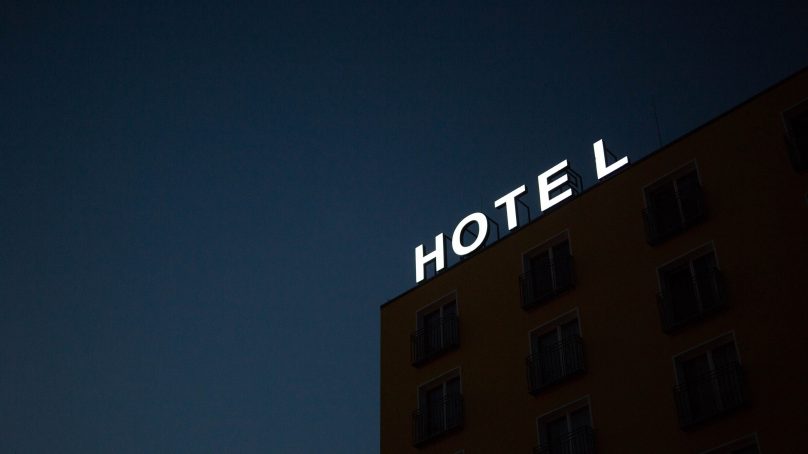
With Abu Dhabi National Hotels franchising four of its properties in 2019 and Aldar franchising six in the same year, the “franchise your hotel” run has officially started in the UAE. We get the lowdown on how lucrative franchising can be from Giuliano Gasparini, head of hospitality at Aldar Properties.
With big players changing their business models, leaving the ivory towers of real estate ownership and getting their hands dirty with day-to-day operations, franchising may seem like the perfect solution. But is it really the magic fix for underperforming hotels? The short answer is no. Before setting out on the franchise path, it is important to honestly assess the potential of the asset in question and answer the following questions:
- Is my brand franchise-able?
If you are in the luxury field, it is very difficult for operators to franchise your brand. In an era where brand equity is high in the luxury segment both as customer recognition and as value in the balance sheet, operators are not willing to put it at risk by losing control over product consistency and delivery. However, if your brand falls within the non-luxury segments such as upscale, midscale, economy or budget, then the franchise model is definitely on the table. Against the backdrop of COVID-19, achieving a franchise brand or a switch should be easier as operators have less to lose in terms of fee-generated cash flows.
- Am I a big enough fish?
In the world of franchise size does matter. If you represent a 100 to 200-key property, surely franchising is a potential option; but would that really pay you back? On the one hand, the savings in the base/incentive fees might tempt you. However, do these really offset the incremental efforts in operation and losing the support of operators’ corporate offices (mainly legal and some sales)?
This is clearly subjective, but as a rule of thumb, I would not recommend the franchise option for small hotels as the pay back might not be high enough. The contrary, however, applies if you have the hotelier spirit inside you; this brings us to the next question.
- Is being a hotelier my vocation?
We perceive the GM life to be glamorous, but being a hotelier is hard work. Be prepared for intense sleep deprivation, the threat of negative TripAdvisor reviews, unstable market conditions and unpredictable events, such as COVID-19. Under a franchise scheme, you are on the front line, and there is no operator to blame if something goes wrong. Therefore, you need to feel that burning desire to be in the business.
- Ask yourself “Why am I doing this?”
I have received a huge number of inquiries about the decision to franchise six hotels and the benefits. In our case specifically, franchising enabled us to cluster six hotels into one single giant operation of 1,760 keys, achieving massive economies of scale in terms of procurement and payroll that outnumbered the savings in the fees to operators. Ultimately, the real objective was clustering, so we achieved this through franchising. This is another case in our industry where size matters. Yes, franchising does maximize flow-through. But if you are featuring low revenues and low digit (or negative) GOP%, it is of little help to your business.
If you are not able relate to the above, it might mean that the franchise model is not the solution to solve your cash flow and ROI problems. So let’s look at a quick guideline to assess where the problem really lies:
- Assess your revenues: talking about revenues during COVID-19 might sound strange, but when discussing franchise it is important to stress that it enhances flow-through without generating additional room revenue. Therefore, the first thing to do is to check your primary STR compset —and feel free to order additional STR compsets — to understand if your hotel (and its operator) are really positioned where they should be. If you see your RevPAR is not in line with that of your peers or not where it should be, maybe an operator switch might be a wiser game-changer than a franchise.
- Assess your cost: if your revenues seem to be all in order but you’re experiencing losses or single-digit GOPs, this means the cost of operations is clearly too high. Cost reduction and property efficiency plans are huge exercises that require an entire manual rather than a short article. Tools to achieve this might be through clustering, renegotiation of contracts, focused asset management, etc. Among these, franchise might be a way to gain control over certain operational costs (in primis the payroll of key hotel personnel), giving you the opportunity to adjust operational expenses to drive more profits. If you are not willing to do this exercise by yourself, you have a plethora of hotel consultants — from the caliber of JLL, Colliers, etc. to individuals who featured a well-tested pedigree of operational experiences — who can help you achieve your goal for a fee.
- Consider engaging a “white label” operator: the main absents of the franchise game in the Middle East are the “white label” operators, although they do not like this term. With the franchise model well established in places like the US, the UK and Europe, white label operators have emerged as an intermediate solution for owners. They allow owners to franchise their hotels in a hassle-free way by moving the full operations to the capable and efficient hands of companies such as Interstate, Westmont, Highgate and the like. Of course, everything comes at a price, so be prepared to negotiate (on top of the franchise agreement) a management agreement that gives them a slice of the cake under the form of traditional base and incentive fees (or exit value in some cases). White label operations probably represent the most interesting ”watch this space” opportunity for selected multi-brand platforms.
When it comes to switching your hotel into a franchise, it’s better to know in advance how much you can digest. There is nothing worse than getting tempted by the flavor of the month and ending up with stomach problems for the next 15 years.
Add to Favorites 


















